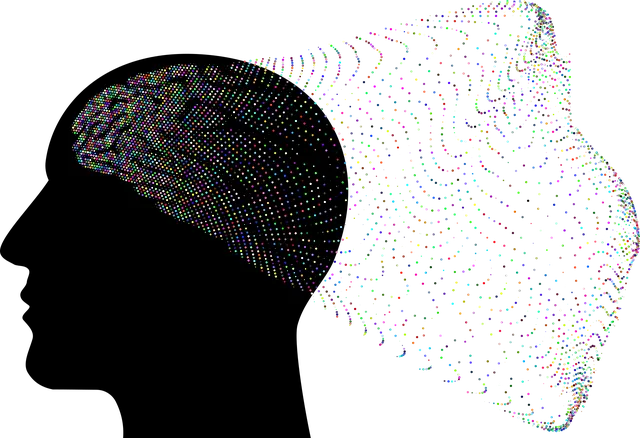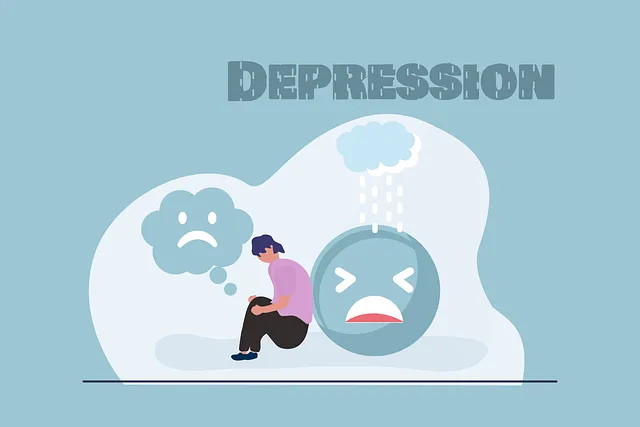The Northglenn Kaiser Permanente mental health center by owner offers a safe space for trauma healing, using empathy and evidence-based practices to teach emotional regulation. They provide holistic services, risk management, and tailored anxiety relief strategies, educating the community about trauma's impact and fostering resilience for long-term recovery.
Trauma can have profound, lasting effects on individuals’ lives, making accessible and effective support services crucial. This article explores the critical role of organizations like Northglenn Kaiser Permanente in providing mental health support tailored to trauma survivors. We delve into understanding the complexities of trauma, its impact, and how centers like Northglenn’s adopt trauma-informed approaches for healing and recovery. By examining these strategies, we aim to illuminate the path towards better supporting those who have experienced traumatic events.
- Understanding Trauma and Its Impact
- The Role of Kaiser Permanente in Mental Health Support
- Establishing Effective Trauma-Informed Services
- Northglenn Center's Approach to Healing and Recovery
Understanding Trauma and Its Impact

Trauma is a profound and complex experience that can leave lasting effects on individuals’ mental and emotional well-being. It’s important to recognize that trauma isn’t just about past events; it also encompasses current challenges that can trigger intense responses, affecting one’s ability to cope with daily life. The Northglenn Kaiser Permanente mental health center by owner provides a safe space for those dealing with trauma to begin their journey of healing.
Understanding trauma involves comprehending its impact on the brain and body. It can disrupt typical stress response systems, making it difficult for individuals to regulate their emotions effectively. Empathy Building Strategies, such as active listening and non-judgmental support, are crucial tools employed by mental health professionals at Kaiser Permanente. By fostering a sense of safety, these strategies help clients develop emotional regulation skills, enabling them to manage their moods more effectively. This process is essential in navigating the challenges presented by trauma, ultimately promoting recovery and resilience.
The Role of Kaiser Permanente in Mental Health Support

Northglenn Kaiser Permanente stands as a beacon of hope and healing for those navigating mental health challenges. As a trusted healthcare provider, they offer a dedicated mental health center that is owned and operated by professionals committed to making high-quality care accessible to the community. This facility serves as a holistic hub for various services, focusing on both acute crisis intervention and long-term recovery support.
The center leverages evidence-based practices and embraces innovative approaches to self-care, ensuring individuals receive comprehensive treatment tailored to their unique needs. Risk assessment forms a cornerstone of their strategy, enabling mental health professionals to proactively manage moods and mitigate risks. By fostering an environment that promotes resilience and empowers individuals to take control of their mental well-being, Northglenn Kaiser Permanente is revolutionizing the landscape of mental health support in the region.
Establishing Effective Trauma-Informed Services

Establishing Effective Trauma-Informed Services at the Northglenn Kaiser Permanente Mental Health Center by Owner requires a multifaceted approach. It starts with ensuring that all staff members are trained in trauma-informed care, enabling them to respond sensitively and effectively to individuals who have experienced traumatic events. This involves understanding the impact of trauma on mental health and adopting practices that create safe, supportive spaces for healing.
At the Northglenn Kaiser Permanente Mental Health Center, this transformation is achieved through Public Awareness Campaigns Development and Community Outreach Program Implementation. By raising awareness about trauma and its effects, we aim to reduce stigma and encourage individuals to seek help. Additionally, our programs focus on providing Anxiety Relief strategies tailored to those who have suffered from traumatic experiences. These initiatives are pivotal in fostering a community that prioritizes mental well-being and offers healing and support for all.
Northglenn Center's Approach to Healing and Recovery

The Northglenn Center, a specialized mental health center under the Kaiser Permanente banner, takes a holistic approach to healing and recovery from trauma. Recognizing that each individual’s journey is unique, they offer a range of tailored services designed to support those who have experienced traumatic events. The center’s dedicated team comprises licensed therapists, counselors, and specialists in trauma support services. They provide a safe and supportive environment where individuals can process their experiences through evidence-based practices, such as Crisis Intervention Guidance and Social Skills Training.
By integrating various therapeutic techniques, Northglenn Kaiser Permanente ensures comprehensive care that addresses the complex needs of its clients. Whether it’s helping them develop coping strategies, enhance social interactions, or work through the underlying causes of trauma, their goal is to empower individuals to lead fulfilling lives. The center’s commitment to excellence in trauma support services sets it apart as a trusted partner in the journey towards healing and recovery.
Trauma support services have evolved significantly, with organizations like Northglenn Kaiser Permanente mental health center leading the way in providing effective, trauma-informed care. By understanding the profound impact of trauma and adopting approaches that prioritize healing and recovery, such as those exemplified by the Northglenn Center, we can foster more inclusive and compassionate communities. The role of mental health institutions, like this specific center by owner, is crucial in ensuring individuals affected by trauma receive the specialized support they need to navigate their journeys towards resilience and well-being.






